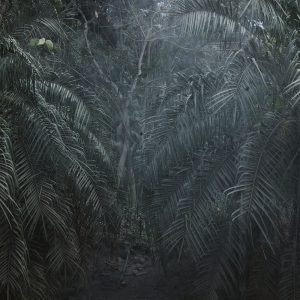The Stream, April 22, 2021: Indian Farmers Aren’t Practicing Sustainable Agriculture, Report Says
YOUR GLOBAL RUNDOWN
- A new report finds that less than four percent of Indian farmers practice sustainable agriculture.
- Rare extreme climate events could become more common in the United States, experts say.
- Ethiopia denies over a dozen proposals from Egypt during Grand Ethiopian Renaissance Dam negotiations.
- City officials in Memphis, Tennessee delay a vote on an ordinance that could stop the construction of a contentious oil pipeline.
A proposed desalination plant in England draws criticism from local conservationists.
“The increased salinity of the brine could cause changes to the chemical composition of the surrounding water, impacting a wide range of marine species and potentially impacting the passage of migratory fish species into nearby river catchments.” – Tim Ferrero of the Hampshire and Isle of Wight Wildlife Trust (HIWWT). The BBC reports that a proposed desalination plant near the Southampton Water estuary in England could threaten nearby wildlife habitat, conservationists have warned. HIWWT said brine from the plant that would be deposited back into the sea could change the water’s ecosystem. A petition opposing the plant has gained over 1,800 signatures, although the utility behind the proposal insists the facility is necessary to provide drinking water and counter future droughts.
- Why it matters: Brine production from desalination plants around the globe is 50 percent larger than earlier assumptions, according to a 2019 UN think tank paper. The problem is especially prevalent on the Arabian Peninsula, which accounts for 55 percent of global brine production.
IN RECENT WATER NEWS
In Case You Missed It:
Pandemic Brings WASH To Rare Inflection Point – Despite fears of collapse, water, sanitation, and hygiene draw closer to epic goal.
Water Access: As Moratoria on Shutoffs End, Old Problems Return to the Forefront – As moratoria expire across the Great Lakes region, advocates say ongoing affordability and debt relief are key.
Expect More Extreme Weather Events of All Kinds, Climate Experts Say
Experts say rare extreme weather events, like the deep freeze that occurred in Texas in February, could take place more frequently due to climate change, Inside Climate News reports. The increased risk of climate disaster is also raising concerns about the nation’s ability to respond to multiple disasters at once.
- Why it matters: When Texas froze in February, thousands across the state lost access to clean water. Pipes have since thawed and water access has been restored, but the threat of more intense weather events Now, Texans must decide whether to continue electing lawmakers who ignore the consequences of climate disruption, which many state leaders consider a hoax.
TODAY’S TOP WATER STORIES, TOLD IN NUMBERS
4 PERCENT
A new report from the Council on Energy, Environment and Water found that less than four percent of all Indian farmers have adopted sustainable agricultural practices. The report includes several recommendations, including restructuring government support to farmers through sustainable incentives and rewards.
15 IDEAS
Egyptian Minister of Water Resources and Irrigation Mohammed Abdel-Ati said Ethiopia rejected 15 of Egypt’s ideas to resolve conflict around the controversial Grand Ethiopian Renaissance Dam, Arab News reports. According to Abdel-Ati, Egypt’s proposals met Ethiopian requirements and prevented tangible harm to Egypt and Sudan, but were dismissed by Ethiopia’s prime minister.
ON THE RADAR
An oil pipeline company asked city officials in Memphis, Tennessee, to pause discussions on a proposed pipeline ordinance, the Associated Press reports. The ordinance would establish a board to approve or deny construction of underground pipelines near drinking water sources. The Memphis City Council approved a two-week delay before voting on the ordinance, but did not mention the company’s letter as a reason for doing so. If enacted, the ordinance would be the latest of several measures opponents have taken to block the Byhalia pipeline, which would run directly over an aquifer that provides drinking water to one million people.
Jane is a Communications Associate for Circle of Blue. She writes The Stream and has covered domestic and international water issues for Circle of Blue. She is a recent graduate of Grand Valley State University, where she studied Multimedia Journalism and Women, Gender and Sexuality Studies. During her time at Grand Valley, she was the host of the Community Service Learning Center podcast Be the Change. Currently based in Grand Rapids, Michigan, Jane enjoys listening to music, reading and spending time outdoors.







Leave a Reply
Want to join the discussion?Feel free to contribute!